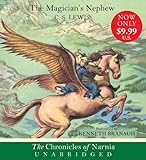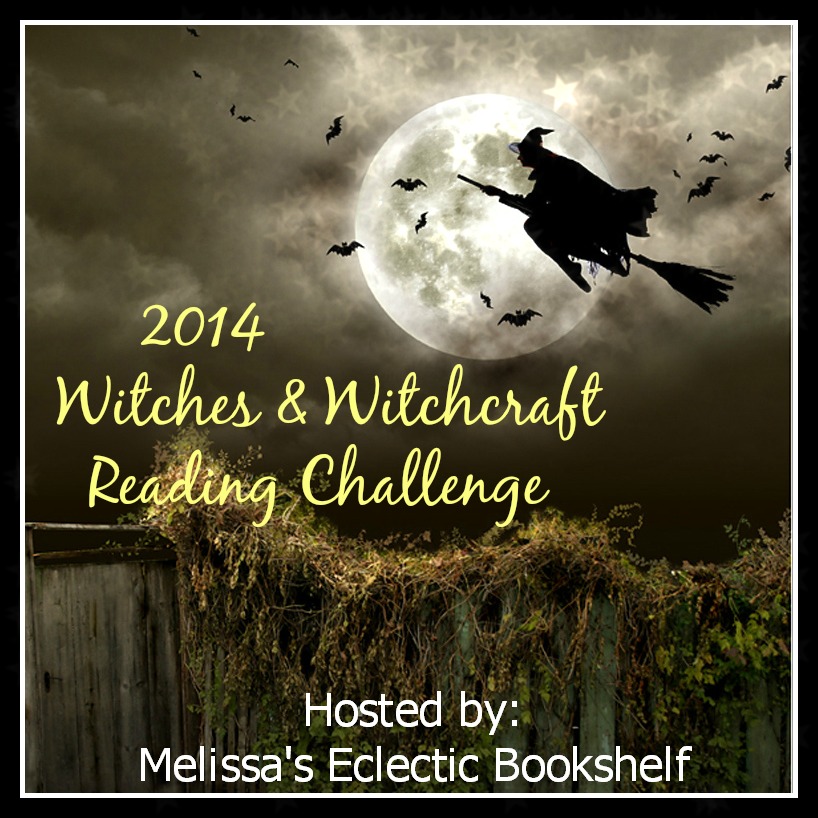 Many years ago, I started reading the Chronicles of Narnia, but I think I stalled out somewhere in the middle of [amazon_link id=”0064405028″ target=”_blank” ]The Voyage of the ‘Dawn Treader’[/amazon_link]. I never did finish the series, and I have almost no memory of what happens in the books (with the large exception of [amazon_link id=”0064404994″ target=”_blank” ]The Lion, the Witch and the Wardrobe[/amazon_link]). I did remember that Jadis spoke the Deplorable Word and destroyed Charn in The Magician’s Nephew, but that is truthfully just about all I remembered. So when I discovered that the audio book versions of the Chronicles of Narnia were all read by great British actors like Kenneth Branagh, Michael York, Derek Jacobi, and Patrick Stewart, I decided to use my Audible credits to get the whole series and re-read it once I had accumulated the entire collection. I have decided to follow the apparently controversial chronology established by Harper Collins rather than the publication order. I know plenty of people seem to feel quite strongly that following chronological order instead of publication order is doing it wrong, but I am going to do it anyway. I hate reading rules, anyway.
Many years ago, I started reading the Chronicles of Narnia, but I think I stalled out somewhere in the middle of [amazon_link id=”0064405028″ target=”_blank” ]The Voyage of the ‘Dawn Treader’[/amazon_link]. I never did finish the series, and I have almost no memory of what happens in the books (with the large exception of [amazon_link id=”0064404994″ target=”_blank” ]The Lion, the Witch and the Wardrobe[/amazon_link]). I did remember that Jadis spoke the Deplorable Word and destroyed Charn in The Magician’s Nephew, but that is truthfully just about all I remembered. So when I discovered that the audio book versions of the Chronicles of Narnia were all read by great British actors like Kenneth Branagh, Michael York, Derek Jacobi, and Patrick Stewart, I decided to use my Audible credits to get the whole series and re-read it once I had accumulated the entire collection. I have decided to follow the apparently controversial chronology established by Harper Collins rather than the publication order. I know plenty of people seem to feel quite strongly that following chronological order instead of publication order is doing it wrong, but I am going to do it anyway. I hate reading rules, anyway.
If you are unfamiliar with the plot of The Magician’s Nephew, it concerns the story of Digory Kirke, the nephew in question, who later grows up to be the professor who takes in the Pevensies when they are fleeing London during World War II. His evil uncle Andrew is a magician who believes he possibly had the last real fairy godmother in Britain. He creates some magic rings that will take the bearer to another world, but as he’s too chicken to try them out himself, he forces Digory to try them by sending his new friend Polly to this other world without a ring that will bring her back. When Digory goes to rescue Polly, he discovers the rings actually take to bearer to a place between worlds. Digory and Polly decide to explore one of the other worlds before going back to mean Uncle Andrew, and they wind up in the destroyed world of Charn. Digory wakes up the evil former queen of Charn, Jadis, when he is too tempted to ring a bell to resist, and she manages to go back to London with the children, where Andrew is both charmed and frightened by her. In an attempt to take Jadis away from London, the children, Andrew, and a hapless cabbie and his horse all wind up in the land between worlds and from there end up in Narnia, which is just in the process of being created by Aslan (the Jesus allegory lion). Unfortunately, Jadis is there, too, and Aslan is disappointed that people have already brought evil into the world he just created (cue really heavy-handed Genesis allegory here). He asks that Digory right the wrong by retrieving an apple from a far distant tree. When he arrives, Jadis tempts him to eat the apple himself, but he manages to resist and bring it back to Aslan, who uses it to plant a tree that will protect Narnia from Jadis, now the White Witch, at least for as long as the tree stands. He gives Digory one of the apples to take back with him to London so that he can give it to his ailing mother and cure her, which he does. Later he plants the core, which grows into a great apple tree from which a certain wardrobe is later made.
One thing I thought as I listened to this book, aside from the thought that Kenneth Branagh should just read all the books to me, is that J. K. Rowling and Neil Gaiman owe a fairly obvious debt of gratitude to C. S. Lewis. I know both have acknowledged him as an influence, but the writing style and humor really reminded me of the kinds of things I have heard in Rowling (particularly the first few books of the Harry Potter series) and Gaiman’s [amazon_link id=”0060530944″ target=”_blank” ]The Graveyard Book[/amazon_link]. Polly in particular reminded me of Scarlett Perkins in The Graveyard Book. She was utterly charming, and I liked her very much. I didn’t remember Uncle Andrew very much from my first reading of his novel, but Kenneth Branagh gave him this fabulous unctuous manner of speaking that made me happy every time he was given a line. In fact, Branagh was fabulous the entire way through. I really could listen to him read all the books.
Because this book features Jadis, who later becomes the White Witch, I will count it for the Witches & Witchcraft Reading Challenge. From this time forward, audio books will receive two ratings: one rating for the story and one for the audio interpretation.
Story Rating: 




Audio Rating: 





I didn't appreciate how funny Uncle Andrew is when I read these books as a kid. I have all the audiobooks with the narrators you mention, but haven't listened to them yet. But I admit that the prospect of hearing Kenneth Branagh do the Uncle Andrew voice is very appealing.
I love seeing the debt that many many children's book authors owe to CS Lewis. I think Diana Wynne Jones is another one — I can't put my finger on the exact points of writerly inheritance, but DWJ feels so much like CS Lewis sometimes.
I know what you mean. I didn't actually read these as a kid, but Uncle Andrew's comedy went over my head the first time I read this book in college. Michael York on The Lion, the Witch and the Wardrobe is not as good as Kenneth Branagh on The Magician's Nephew.